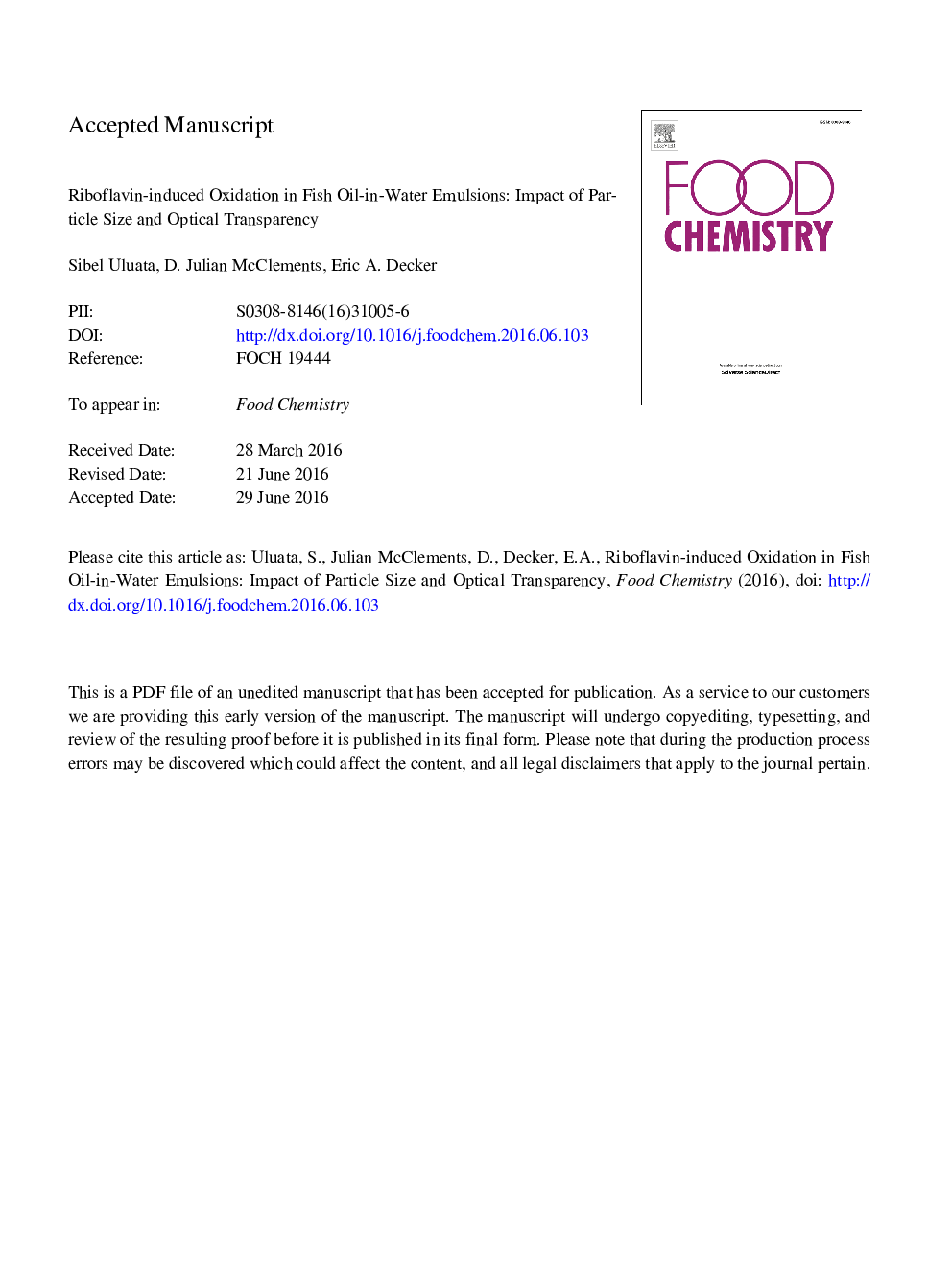| Article ID | Journal | Published Year | Pages | File Type |
|---|---|---|---|---|
| 7587468 | Food Chemistry | 2016 | 27 Pages |
Abstract
The influence of particle size and optical properties on the stability of fish oil-in-water emulsions to riboflavin-induced oxidation by blending different combinations of small (d = 44 nm) and large (d = 216 nm) lipid droplets was examined. Emulsion turbidity increased with increasing mean droplet diameter due to greater light scattering by larger particles. The influence of droplet size on the stability of the emulsions to riboflavin-induced lipid oxidation during storage at 20 or 37 °C was measured. At 37 °C, the rate of lipid hydroperoxide formation increased with decreasing droplet diameter, but there were no significant differences in propanal concentrations. At 20 °C, both peroxide and propanal values indicated that the rate of oxidation increased with decreasing droplet size. These data show that riboflavin was more effective at promoting oxidation in nanoemulsions containing small droplets because light was able to penetrate more easily and generate reactive oxygen species.
Related Topics
Physical Sciences and Engineering
Chemistry
Analytical Chemistry
Authors
Sibel Uluata, D. Julian McClements, Eric A. Decker,
